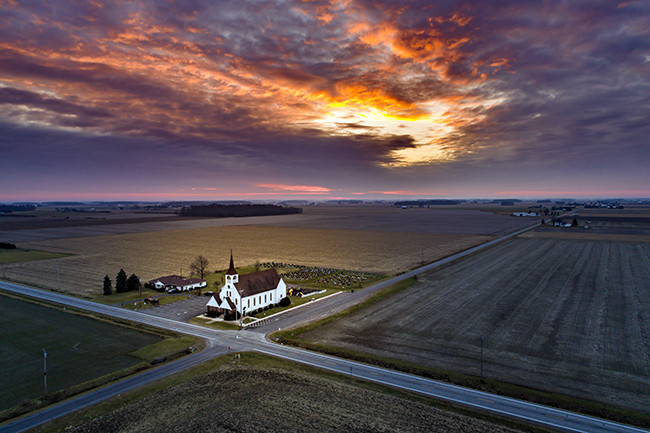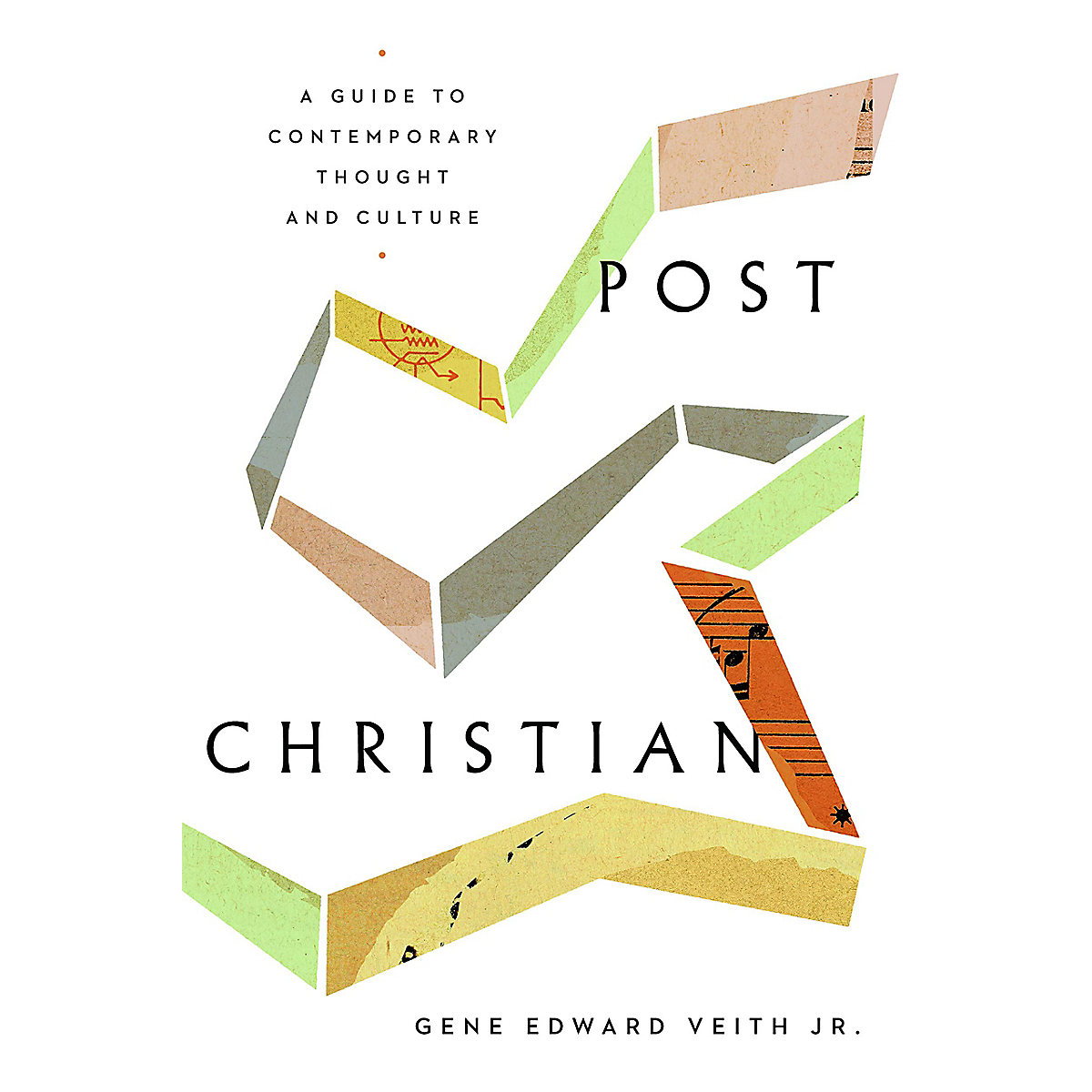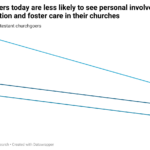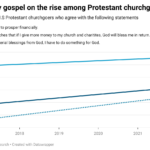
If the current trajectories continue, the religious demographics of the South in 10 years will look similar to the current West and Northeast.
By Kristy Etheridge
Ed Litton’s congregation needed a wake-up call. So, one Sunday night, he rounded up everyone age 50 and over and told them, “We’re gonna die.”
In this case, he wasn’t talking about individuals, but the church. Sure, they were in Mobile, Ala., in the heart of the Bible Belt. But without intentional efforts to reach younger generations, the church would age out and die.
“We’re on a really nice corner of property on an interstate,” Litton told his congregation. “This is gonna become a Home Depot.”
People wept that day, but the reality check worked. A decade later, the church is multigenerational and thriving.
Not every Bible Belt church can say the same, as a sobering trend becomes clearer: The Southeast is increasingly trending post-Christian.
The changing South
In Barna’s ranking of the most post-Christian cities in America, New England and the West Coast predictably dominate the top of the list. But keep scrolling, and you’ll begin to spot some Southern states. Texas, Florida, and North Carolina all have cities in the top 50.
Perhaps more telling is the change that’s taken place since the list was first published in 2017. At least 20 cities in the Southeast have grown more post-Christian, some of them dramatically.
In Charleston, S.C., Barna’s research showed 22% of the population was considered post-Christian in 2017. Two years later, the number rose to 34%.
The Waco-Temple-Bryan region of Texas jumped from 32% post-Christian in 2017 to 43% in 2019.
To qualify as “post-Christian,” individuals must meet at least nine criteria such as not believing in God, not attending church in the past six months, and disagreeing that the Bible is accurate.
Dallas, Texas; Jacksonville, Fla.; Raleigh, N.C.; Atlanta, Ga.; Norfolk, Va.; Knoxville, Tenn.; Baton Rouge, La; and Charleston, W.Va. are among the other Bible Belt cities that saw an increase in post-Christian culture.
If the current trajectories continue, the religious demographics of the South in 10 years will look similar to the current West and Northeast. Click To TweetAccording to Pew Research Center, 82% of adults in the U.S. South identified as Christian in 2009. In their most recent study, 70% of Southerners said the same. Coincidentally, the current percentage of Christians in the South today is similar to the percentage of Christians in the Northeast (74%) and West (69%) a decade ago.
If the current trajectories continue, the religious demographics of the South in 10 years will look similar to the current West and Northeast.
How can Bible Belt churches respond?
In light of these trends, churches that once relied on the cultural Christianity of the Bible Belt will need to reassess their ministry strategies while staying true to the gospel.
Five evangelical pastors and leaders, all of whom have served in post-Christian contexts, took time to share insights and strategies for reaching an increasingly lost culture.
Ed and Kathy Litton live in Mobile, Ala. Ed has served as senior pastor of Redemption Church (formerly First Baptist North Mobile) for more than 25 years and previously planted a church in Tucson, Ariz. His wife, Kathy, is the director of planter spouse development for the North American Mission Board. She has served in ministry roles in Missouri, Texas and Colorado.
Vance Pitman is the senior pastor of Hope Church Las Vegas, planted in 2001 out of First Baptist Church in Woodstock, Ga.
D.A. Horton is an assistant professor and director of intercultural studies at California Baptist University. He serves as the associate teaching pastor at The Grove Community Church in Riverside, Calif., and is a doctoral student at Southeastern Baptist Theological Seminary.
James Roberson is the senior pastor of The Bridge Church NYC in Brooklyn, N.Y. He has served in ministry roles in Texas, Maryland, Tennessee, Georgia and North Carolina.
Five key themes emerged from conversations with these ministry leaders.
Strip away spiritual assumptions
When Vance Pitman left the Southeast to plant a church in Las Vegas, he quickly realized methods that worked in the Bible Belt wouldn’t fly out West.
One of the kids in his neighborhood had never heard of Jesus. Another neighbor—a college-educated adult—couldn’t figure out what church had to do with Easter. Pitman had to go back to the basics.
“I’ve been taught my whole life, the way you share the gospel is the Roman Road,” Pitman said, “which starts with, ‘All have sinned and fall short of the glory of God’ (Romans 3:23).
“That presumes people believe there is a God. We had to start over with 1 Timothy 2:5, which says, ‘There is one God and one mediator between God and men, Christ Jesus.’”
Unchurched Americans were asked: "How often do you wonder, ‘If I were to die today, do I know for sure that I would go to heaven?’” More than 40% answered “never.” Click To TweetAnother popular method of evangelism poses the question, “If you died today, do you know for sure that you would go to Heaven?”
In 2016, Lifeway Research partnered with the Wheaton College Billy Graham Center to survey 2,000 unchurched Americans about their spiritual beliefs. One question asked, “How often do you wonder, ‘If I were to die today, do I know for sure that I would go to heaven?’” More than 40% answered “never.”
As cultural Christianity erodes in the South, believers will need to take a hard look at how they share their faith, being careful not to make assumptions about shared beliefs.
Start at the Beginning
These days, when D.A. Horton engages Californians in conversations about God, he uses a different method than the one he learned growing up in Kansas City.
“I used to go into every conversation with the binary: they’re either going to embrace the gospel and accept Christ today or reject it and I wash my hands clean,” Horton said. “I was very wrong for approaching it that way, but that’s the way I was raised.”
He’s not in Kansas anymore; now, Horton knows some people will need to have many conversations depending on their life experiences and beliefs. He tries to start at the beginning: God created men and women in His image.
“That’s one of the most effective strategies that I have found out here,” Horton said. “When I’m talking to people, whether it be at the grocery store, at the barber shop or whether it’s my Uber catching a ride to the airport, when they hear me affirm the reality of everyone being an image bearer of God, I have literally seen people who are radically opposed to what I’m saying let their guard down and for a moment say, ‘Man, I could actually listen to you.’”
All of the social issues we’re engaging today, from racism to misogyny to the #MeToo movement—everything—it’s because of a lack of the affirmation of the God-given image-bearing reality of every human being. — @da_horton Click To TweetFrom there, he moves on to the fall of humanity and redemption through Christ. But it all starts with the imago Dei.
“All of the social issues we’re engaging today, from racism to misogyny to the #MeToo movement—everything—it’s because of a lack of the affirmation of the God-given image-bearing reality of every human being,” Horton said. “And so, when we affirm the fact that every human being equally bears the image of God, although is marred by sin, I think that’s where our gospel conversations must start.”
Know the culture—and address it head-on
Last May, when the world watched a Minneapolis police officer kneel on George Floyd’s neck for 8 minutes and 46 seconds, a cultural reckoning was unleashed. For James Roberson and The Bridge Church NYC, it would have been unthinkable not to address it.
“New York is not a space where we’re not going to talk about big cultural issues,” Roberson said. “Whether it’s around gender, sexuality, politics, race, justice and injustice … you’ve got to be able to help people think about the culture and learn how to be godly in the midst of it.”
As the nation grows more diverse and the cultural landscape of the South shifts, it becomes more obvious when churches avoid cultural—and Biblical—issues like racism.
In a raw and vulnerable sermon after George Floyd’s death, Roberson pleaded with his White brothers and sisters in Christ to open their eyes to the ugly reality of racism in America.
“I think it’s always been the job of the African American preacher to tell history, because it is part of our system in the country to have a rose-colored narrative on American history,” Roberson said. “And the African American preachers, from the days of slavery to abolitionists to the Civil Rights Movement, have had to frame America in a way that tells both sides of the story.”
Roberson believes pastors who are beginning to experience a post-Christian shift must educate themselves on the cultural issues of their communities.
“For pastors, they need to diversify their bookshelf, but they also need to diversify their dining room table,” Roberson said.
In light of the recent violence at the Capitol and the polarization that continues to plague the U.S. and divide Christians, both Roberson and Horton called for preaching that transcends partisan politics.
Focus on the community first
According to Pitman, “The biggest mindset shift that has to take place in pastors—and this needs to happen now in the Bible Belt—is they need to start thinking about their city rather than their church.”
“Before moving (to Las Vegas), all I ever thought about was my church,” Pitman said. “I never thought one time about my city. And the real question is not, ‘Are more people coming into my church?’ The real question is, ‘Is the percentage of lostness in my city going down?’”
"The real question is not, ‘Are more people coming into my church?’ The real question is, ‘Is the percentage of lostness in my city going down?’” — @vancepitman Click To TweetHope Church Las Vegas conducts an annual “domain survey” to find out which areas of society its congregation is already engaged in. The results help determine the most effective community outreach.
“We had inroads into the foster care situation in our city,” Pitman said, “so we built strong bridges into the foster system in Nevada. … We made it our ambition that in 10 years we want there to be more families in the system waiting on children than children waiting on families.”
They’ve trained 400 families so far. And people are taking notice.
“In the Bible Belt, outreach meant visiting people who visited you,” Pitman said. “The church was the center of what we did. Now we’re having people get connected to our church who have never been to a church service because they got engaged through foster care or service work or fighting human trafficking.”
For churches that aren’t sure where to begin, Pitman recommends starting with the city manager. Smaller churches could start with their local school.
“I’d go in and say, ‘What are the top five issues you’re facing right now that you don’t know how to solve?’” Pitman said.
“In a post-Christian culture, people don’t really care what you know ‘til they know that you care,” he added. “Most churches exist in cities as parasites. We want tax breaks, we want discounts. And what churches need to become is not parasites but partners.”
Think like a survivalist
After decades in ministry, Ed and Kathy Litton agree that churches in a post-Christian culture must adopt the mentality of a survivalist. This is something they’ve learned through church planting.
Like a fledgling start-up, a newly planted church often lacks the resources enjoyed by more established houses of worship. Every person, every relationship, every dollar counts.
“There’s a survivalist mentality among church planters that pastors in the South need,” Ed said. “We need to look at the reality that time is ticking. We’re on a sinking ship. We better figure out how to get people on a lifeboat.”
Southern pastors engaging in the rescue mission have the difficult task of reaching non-Christians as well as cultural Christians.
“This is a dangerous phrase to me: ‘I raised my kids in church,’” Kathy said. “A lot of pastors would tell you this, that families quit coming to church when they hit about 48. In other words, ‘I’ve checked the box, raised my kids in church,’ and then they don’t come anymore.”
She said that kind of mindset is “quintessential church culture,” and it reveals a lack of transformation through Christ.
Part of the secret of staying healthy as a Bible Belt church is working to see the Great Commission fulfilled in other regions of the U.S. Click To TweetThe Littons believe church planting can simultaneously reach the lost and wake up cultural Christians who are falling away. Redemption Church has helped plant congregations that are advancing God’s Kingdom in places like Nevada and Colorado. When people see the Great Commission being fulfilled before their eyes, it’s hard not to jump in and get excited about it.
“I do think it’s part of the secret of staying healthy as a Southern church,” Kathy said.
“And we wish more Southern churches would engage,” Ed added. “I don’t care what their size is. They can engage at some level. We’ve opened the door in Mobile for churches large and small to join us in Vegas, join us in different places that we’re helping to plant. And it’s amazing the vitality it brings to those churches.”













